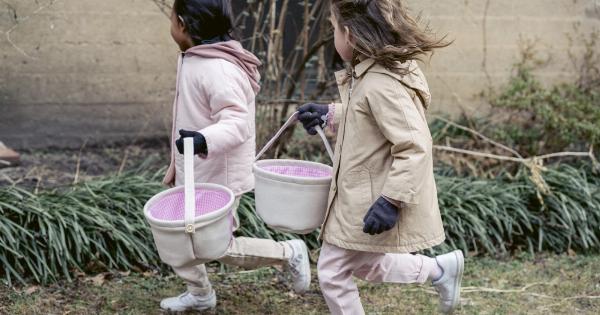Children are naturally curious beings. They have an innate desire to explore and discover the world around them.
While books and classrooms provide valuable learning experiences, nothing can quite compare to the wonders and adventures that await them in the great outdoors. Allowing children to investigate the outdoors not only stimulates their curiosity but also enhances their overall development.
The benefits of outdoor exploration
1. Physical development.
When children venture outdoors, they engage in various physical activities such as running, climbing, and jumping. These activities promote the development of gross motor skills, strengthen muscles, and improve coordination and balance.
2. Cognitive development.
The outdoors offer a plethora of sensory experiences that help children develop their cognitive skills. They can observe, listen, and touch various natural elements, stimulating their senses and enhancing their cognitive abilities.
They learn about cause and effect, problem-solving, and critical thinking through hands-on experiences.
3. Emotional development.
Exploring the outdoors allows children to connect with nature and develop a sense of wonder and appreciation for the world around them. Being in nature has a calming effect on children, reducing stress and anxiety.
It also promotes a sense of freedom, independence, and self-confidence.
4. Social development.
Outdoor exploration provides opportunities for children to interact and collaborate with their peers. They learn how to communicate, negotiate, and share resources while engaging in imaginative play or group activities.
These social interactions foster empathy, teamwork, and the development of essential social skills.
Encouraging outdoor investigation
1. Create a safe outdoor environment.
First and foremost, ensure that the outdoor environment is safe for children to explore. Remove any potential hazards, create boundaries if necessary, and provide appropriate supervision.
Encourage children to explore, but also establish rules to ensure their well-being.
2. Provide age-appropriate tools and equipment.
Equip children with tools that enable them to investigate and discover the natural world. Depending on their age, provide magnifying glasses, binoculars, bug catchers, or notebooks for recording their findings.
These tools not only enhance their exploration but also instill a sense of curiosity and scientific inquiry.
3. Foster a connection with nature.
Help children develop a connection with nature by teaching them about the environment and its ecosystems. Take them on nature walks, point out different plants and animals, and explain their characteristics.
Encourage them to ask questions, and together, discover the answers.
4. Encourage open-ended play.
Allow children the freedom to explore and play without too many limitations. Provide open-ended materials like sticks, leaves, or rocks that can be used in imaginative play.
This type of play stimulates creativity, problem-solving abilities, and self-expression.
5. Incorporate nature into learning.
Integrate outdoor experiences into their academic pursuits. Instead of solely relying on textbooks, take the learning outdoors. Create scavenger hunts that involve finding different types of leaves, rocks, or animal footprints.
Engage in science experiments in the garden or explore mathematical concepts using natural objects.
Overcoming barriers to outdoor exploration
1. Fear of the unknown.
Some parents may be hesitant to let their children explore the outdoors due to concerns about safety or unfamiliarity with nature. Educate parents about the benefits of outdoor exploration and provide guidelines for safe outdoor play.
Encourage them to gradually expose their children to the outdoors, starting with supervised visits to familiar parks or green spaces.
2. Time constraints.
In today’s fast-paced world, it can be challenging to find time for outdoor exploration. Encourage parents and schools to prioritize outdoor time by incorporating it into daily routines or scheduling regular outdoor activities.
Even a short walk or time spent in the backyard can have a positive impact on a child’s development.
3. Limited access to natural spaces.
Not all children have easy access to natural spaces. In urban areas, green spaces may be limited. Encourage the creation of community gardens, urban parks, or rooftop gardens to provide opportunities for children to connect with nature.
Schools can also collaborate with nearby nature centers or botanical gardens to organize field trips or outdoor learning experiences.
The importance of unstructured play
Unstructured play, particularly in outdoor environments, is vital for a child’s development. It allows children to take the lead, follow their interests, and use their imagination.
Unstructured play fosters creativity, problem-solving skills, and resilience. By giving children the freedom to explore the outdoors on their terms, we are nurturing their natural curiosity and helping them develop into well-rounded individuals.
Conclusion
In a world dominated by technology and structured learning environments, it is crucial to release the child’s curiosity and let them investigate the outdoors.
The benefits of outdoor exploration are numerous, ranging from physical and cognitive development to emotional and social growth. By encouraging outdoor investigation, we empower children to connect with nature, foster their sense of wonder, and develop a lifelong love for the natural world.






























